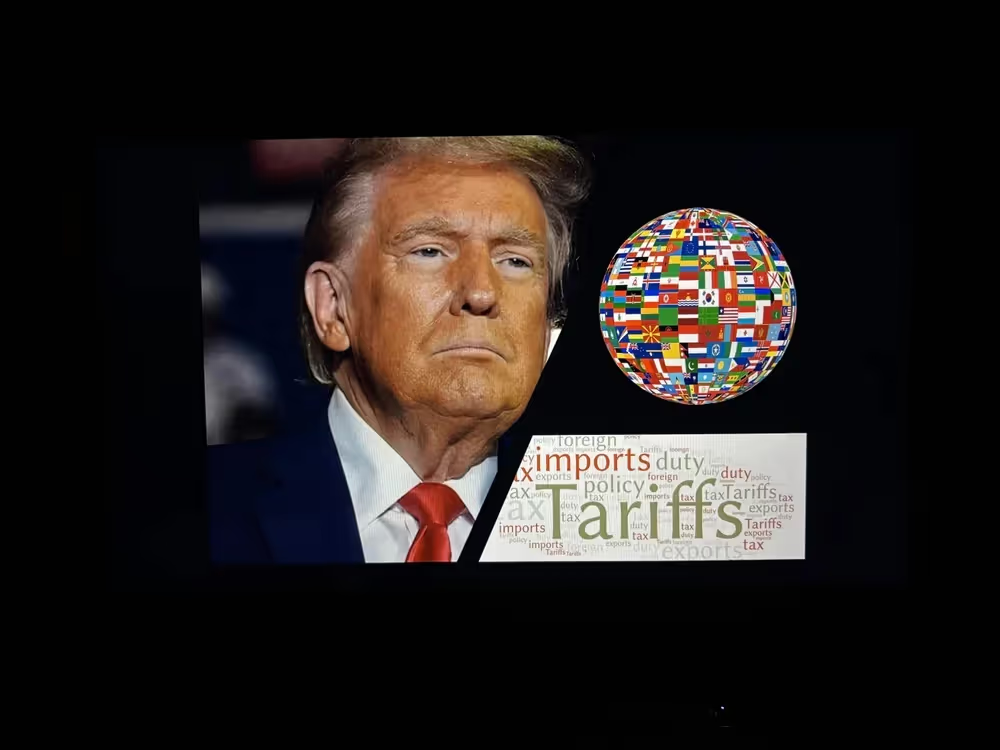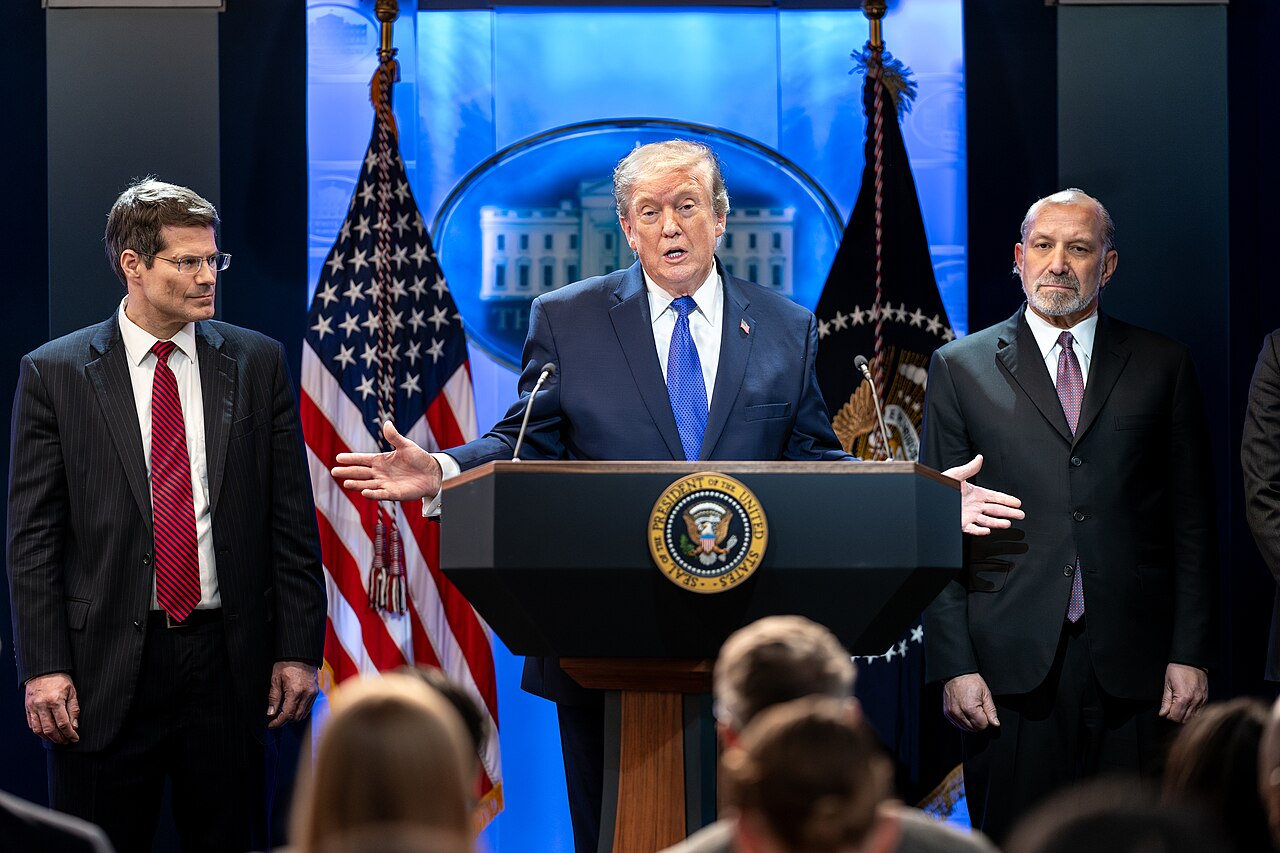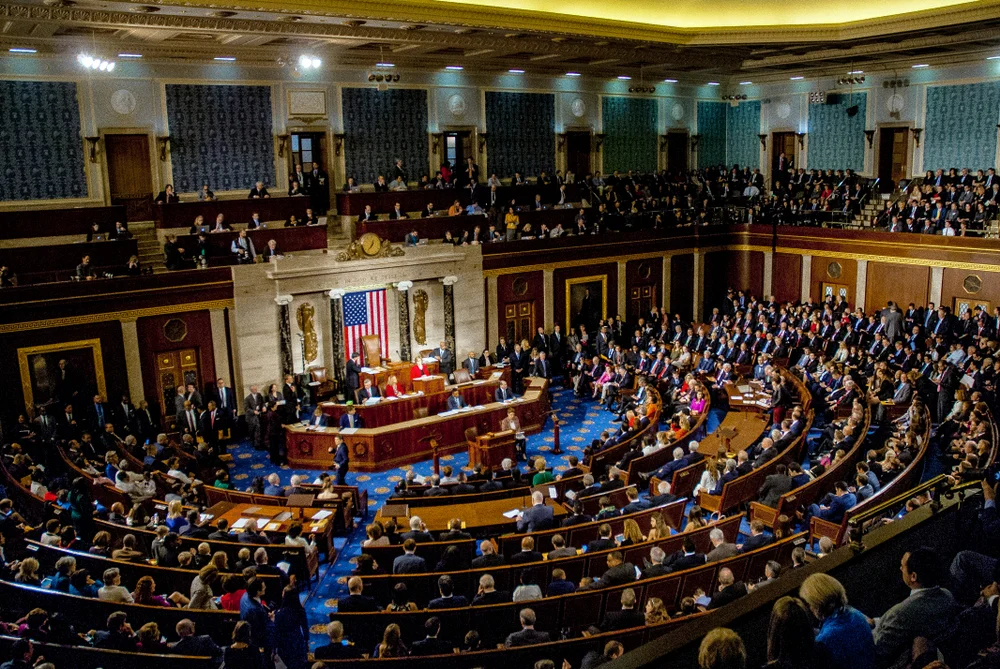
The Real Constitutional Issue with President Trump's Tariff Orders
The fundamental problem is that the relevant portions of the International Emergency Economic Powers Act are themselves unconstitutional.
The U.S. Court of International Trade recently made headlines by issuing an order voiding many of President Donald J. Trump’s tariffs. The case was V.O.S Selections v. United States. The Court of Appeals for the Federal Circuit has stayed the order pending appeal.
When the news hit, many people, including many lawyers, were unaware that the Court of International Trade even existed. A one-time Justice Department lawyer, now a leading radio talk show host, admitted he’d never heard of the tribunal and then mistakenly suggested it was merely an administrative agency rather than a court created under Article III of the Constitution. But it is a real Article III court. Congress established it in 1980 as the successor to the U.S. Customs Court.
Its decision in the V.O.S Selections case is worth attention.
The Case
The President issued a series of executive orders levying and modifying ad valorem tariffs on foreign imports. His statutory authority was the International Emergency Economic Powers Act (IEEPA).
Section 1702 of the IEEPA purports to delegate wide authority to the President. The language granting that authority is exceptionally convoluted. A stripped-down version is that the President may
. . . regulate, direct and compel, nullify, void, prevent or prohibit . . . transfer . . . transportation, importation of, or dealing in . . . any property in which any foreign country or national thereof has any interest by any person, or with respect to any property, subject to the jurisdiction of the United States . . .
The significant phrase for our purposes is “regulate . . . importation.” Section 1701(b) provides that the President may use his authority
only . . . to deal with an unusual and extraordinary threat with respect to which a national emergency has been declared . . . and may not be exercised for any other purpose.
As the court noted, the original statute permitted Congress to void a President’s proclamation of emergency by a simple resolution passed by both houses. Because a Supreme Court decision invalidated that procedure, however, Congress now may override such a presidential emergency proclamation only by passing a measure subject to presidential veto.
The Court of International Trade interpreted the statute somewhat narrowly to avoid a holding that it unconstitutionally delegated legislative power to the President. It ruled that one collection of tariffs violated the IEEPA because the tariffs in that category were unlimited rather than tied to any statutory criterion. Another group of tariffs were held to be void because they did not “deal with” the purported subject of the emergency declaration.
The Constitution
The legal theory underlying the U.S. Constitution is that it is an enumerated power document. Through the Constitution, the American people grant listed powers to specified persons and entities. Most of the grantees are federal officials and departments. The rest are state officials, state legislatures, conventions, and other assemblies outside the federal government—including, for example, the Electoral College. All of these officers and entities are agents of the American people or subsets of the American people.
The Constitution provides that “All legislative Powers herein granted shall be vested in a Congress of the United States . . .” It does not grant legislative authority to the President or to anyone else.
The Constitution was drafted and adopted in the context of Founding-era law. Under that law (as under modern law) an agent could not further delegate his powers without the consent of the principal. The prevailing legal maxim was Delegata potestas non potest delegari: Delegated power cannot be delegated.
Thus, the Constitution prohibits the delegation of congressional powers to the executive. That said, it is also true that the delegation of a particular function is proper if the principal has consented to it. Whether the people have consented to congressional delegation of a function (rendering it, therefore, executive or administrative rather than legislative) depends on the wording of the Constitution, construed in light of surrounding history.
For example, the Constitution grants Congress power to “establish Post Offices and post Roads.” The concept of “establishing” a postal system was codified in a British parliamentary statute adopted in 1711. The precise phrase used in the Constitution was copied from a parliamentary statute adopted in 1767. Prior to Independence, the American postal network operated under the 1711 law, and the Continental and Confederation Congresses took over that network virtually unchanged. The history tells us whether, for example, setting postal rates is part of “establishing” (which can only be done by Congress) or merely an administrative function that can be delegated.
Modern Delegation Controversy
The Supreme Court recognizes the non-delegation principle, but has construed it very narrowly when considering delegations to the executive. In practice, the Court sustains a delegation if the delegating statute restrains executive discretion in any small way—as by specifying an “intelligible principle” for exercise of discretion.
The Supreme Court’s lax standards have provoked controversy, including controversy among the justices themselves. However, nearly all of the discussion has addressed the propriety or non-propriety of delegation in general. Very little has focused on the scope of delegation permitted by specific enumerated powers.
In reviewing economic regulations, the Supreme Court also pursues a “principle of avoidance”—if there is a reasonable way of construing a law that renders the law constitutional rather than unconstitutional, then the court will construe the law in the way that preserves it. Thus, in V.O.S. Selections, the Court of International Trade interpreted the IEEPA in a way that it said preserved its constitutionality.
I’m not sure the Court of International Trade succeeded.
Is the IEEPA Unconstitutional?
Among the Constitution’s “legislative Powers herein granted” to Congress is the power “To lay and collect Taxes, Duties, Imposts and Excises.” Also granted is authority to “regulate Commerce with foreign Nations.” The Constitution does not assign the executive any role over those subjects other than to “take Care that the Laws be faithfully executed.”
In the Founders’ understanding, the term “duties” encompassed (but were not limited to) tariffs on imports. “Imposts” meant specifically tariffs on imports. Tariffs were of two kinds:
- Those designed principally to raise revenue. These were exercises of the taxation power.
- Those designed principally to restrict trade, and therefore usually set too high to generate significant revenue. These were regulations of commerce.
In V.O.S. Selections, the court treated the Trump tariffs as an effort to “regulate . . . importation”—that is, as regulations of foreign commerce. Given the purpose of the tariffs, this classification seems constitutionally accurate. However, the wording of the statute directly contradicts the Constitution: The statute gives the President power to “regulate importation” while the Constitution grants only Congress authority to “regulate Commerce.” Moreover, under current law, there is no way for Congress to countermand the President’s decision other than passing a new measure, which is subject to the veto of the President.
One might defend the IEEPA by showing that the Founders considered the delegation of vast swaths of power to administrative agencies as within the legitimate scope of “regulating commerce.” In Britain, Parliament did just that: It conceded wide discretion to an executive branch agency, the Board of Trade. But in this instance, the British precedent is not helpful because Parliament, unlike Congress, was a sovereign entity. The power it exercised was inherent and not delegated and therefore could be delegated freely to others. Moreover, the British unwritten constitution designated the Crown, not Parliament, as the “arbiter of commerce.” Parliament’s participation in commercial affairs arose out of royal acquiescence.
For instructive examples, we need to turn to early American legislatures, particularly those of the pre-Constitutional period. Although I may have missed something, I know of no early state legislature that considered “regulating commerce” to include turning over untrammeled tariff-setting power to the executive.
Of course, one possible response is that the IEEPA limits presidential control of imports to declared “emergencies.” The flaw in that response is that while the Constitution contains some emergency provisions—such as the Article I Suspension Clause (permitting suspension of habeas corpus) and the Article IV Guarantee Clause (permitting and mandating federal intervention in state affairs under restricted circumstances)—it features no “Executive Emergency Commerce Clause.”
Conclusion
The fundamental problem with the President’s tariff orders is not that he interpreted the IEEPA too expansively. The fundamental problem is that the relevant portions of the IEEPA are themselves unconstitutional.
That issue may be addressed on appeal. If the IEEPA is ruled unconstitutional, then we will have witnessed a historical irony: opponents of President Trump, who probably favor the administrative state, will have dealt a blow against it.
Robert G. Natelson, a former constitutional law professor who is senior fellow in constitutional jurisprudence at the Independence Institute in Denver, authored “The Original Constitution: What It Actually Said and Meant. Publication of its fourth edition is pending. He also is a contributor to the Heritage Foundation’s “Heritage Guide to the Constitution.”
Constitutionalism

Amicus Brief: Hon. William P. Barr and Hon. Michael B. Mukasey in Support of Petitioners
Former AGs Barr and Mukasey Cite Civitas in a SCOTUS Brief

Rational Judicial Review: Constitutions as Power-sharing Agreements, Secession, and the Problem of Dred Scott
Judicial review and originalism serve as valuable commitment mechanisms to enforce future compliance with a political bargain.

Supreme Court showdown exposes shaky case against birthright citizenship
Supreme Court will hear challenges to Trump's order ending birthright citizenship, testing the 14th Amendment's guarantee for babies born in America.

Trump’s Tariff Tantrum
Trump leaps from the frying pan into the fire in the aftermath of Learning Resources v. Trump.

The Administrative State’s Sludge
Congress has delegated so much power across so many statutes that it’s hard to find a question of any public importance to which some agency cannot point to policymaking authority.


.avif)










.avif)
.webp)


